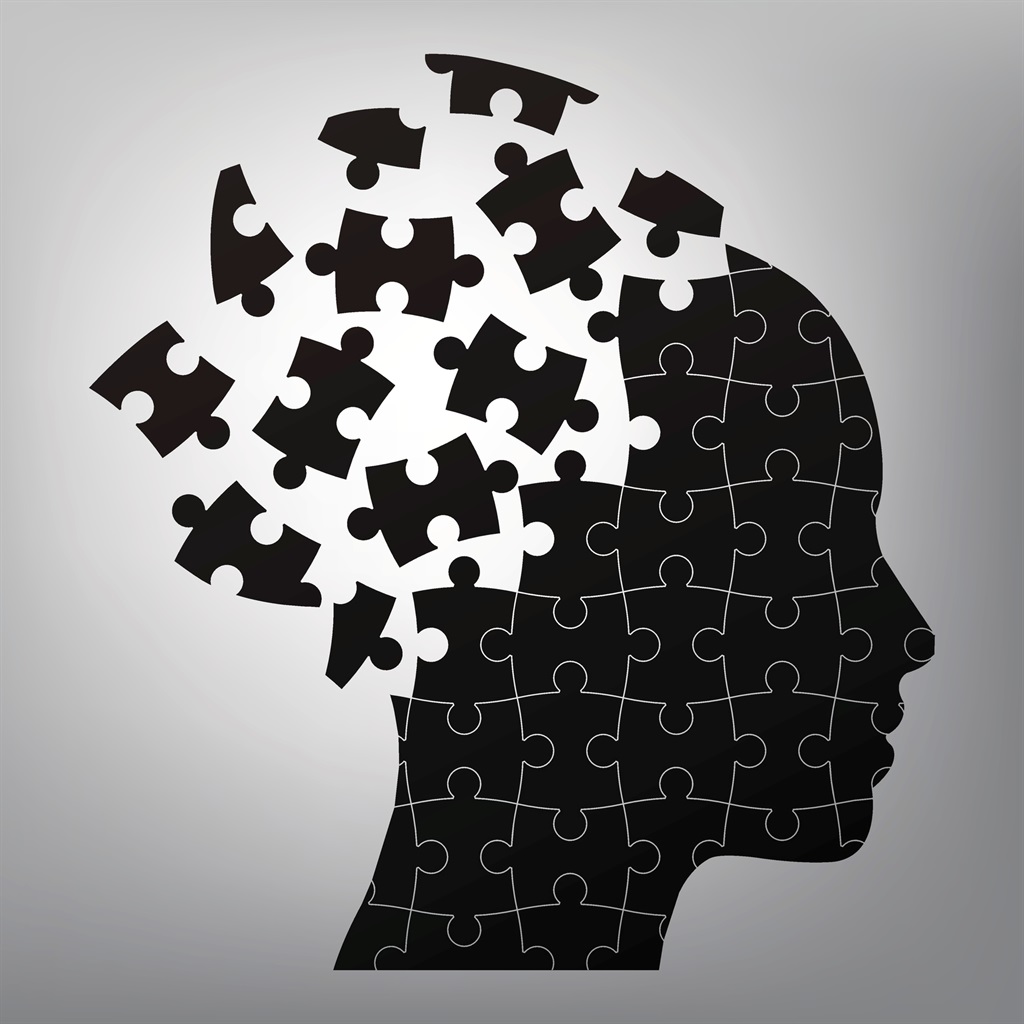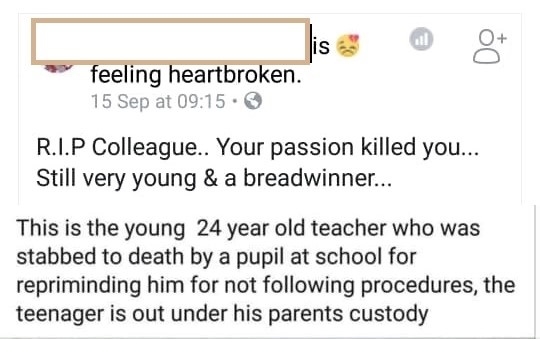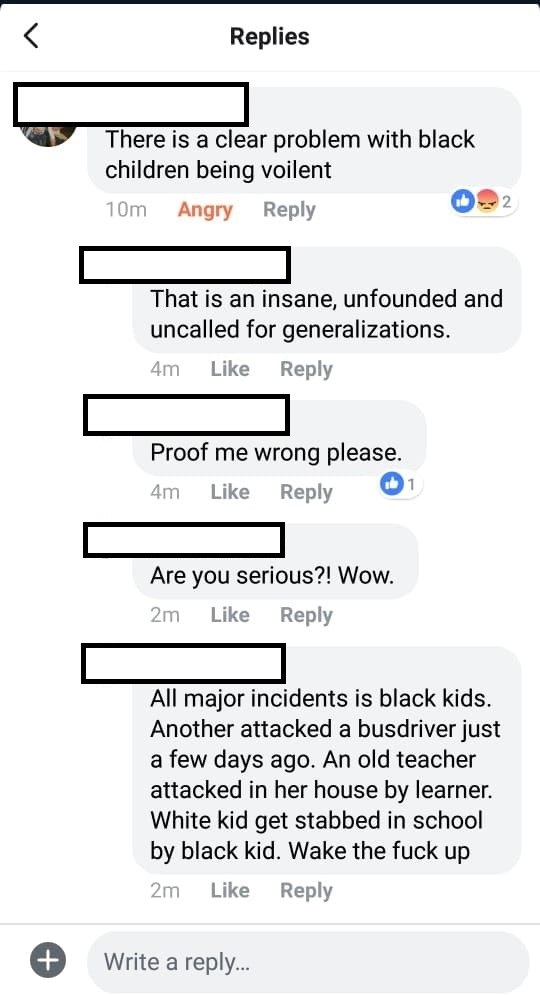
Earlier this week, an individual published several comments on Facebook, describing how “there is a clear problem with black children being violent”.
This person proceeded to attempt to highlight isolated instances where black children had committed crimes, citing that “all major incidents is black kids”.
When a respondent attempted to intervene by indicating that it was “an insane, unfounded and uncalled for generalisation,” he asked to be proven wrong and stated that she ought to “wake the f*** up” calling her a “liberal with white guilt” and saying that “[people like her] will always try and avoid facts”.
This blatant attack on African children is unacceptable and has no place in an open and democratic society.
The South African Federation for Mental Health strongly condemns the actions of this individual, as it does all racist activities.
Our view rests upon the fact that it is an assault on the constitutional rights to human dignity, equality and the best interests of the child as being of paramount importance.
The right to dignity, in particular, is concerned with esteem and self-worth. It is linked to the mental health of an individual in the sense that in its absence, a person is left to feel unworthy and wanting.
In Law v Canada (Minister of Immigration)(1999) SRC 497 the construct of dignity as “psychological integrity” is discussed.
It sets out that “human dignity is harmed by unfair treatment or premised upon personal traits or circumstances…”
With this description in mind, it is indisputable that racism is damaging to a person’s sense of dignity.
This is compounded here, by the fact that the utterances concerned made were in respect of children – a demographic that can likely offer no reply nor seek any meaningful retribution themselves.
As a non-governmental, mental health organisation, the federation for mental health must necessarily comment from the perspective of the “psychological integrity” of the person as set forth in Law v Canada and the effect that racism has on the overall mental health of the victim of this practice.
Researchers have demonstrated a clear nexus between racism and poor mental health, couched in the notion that the type of pain it inflicts can lead to or worsen mental illness or, at the very least can diminish the victim’s sense of personal esteem.
The Royal College of Psychiatrists (2018), for example, has illustrated that “racism is pervasive…like other forms of discrimination it can lead to a profound feeling of pain, harm and humiliation among members of the target group, often leading to despair and exclusion”.
The Bhekisisa Centre for Health Journalism (2017) reported that children who have experienced racism may be more at risk for depression, anxiety and hyperactivity disorder.
And the Synergi Collaborative Centre (2018) highlighted that racism can be followed by phenomena such as an increased amount of hallucinations and delusions, as well as post-traumatic stress disorder.
The fact that the mental health of African people is suffering as a consequence of racism is discussed in extant literature.
A 2009 article by Williams, Gonzalez et al, for instance, illustrated that the number of black South Africans complaining of mental health problems on account of discrimination and stigmatisation was greater than that of any other group.
The individual who wrote the posts mentioned did not discriminate against or name a specific person; they made a general statement followed by examples reported in the news.
On this basis, it may be argued that this is a victimless crime.
But it is not so much about what he said, but rather about the existing broader culture of stigma that casts a shadow over our democracy.
It is about the fact that people are discriminated against on the basis of something over which they have no control and the harm that this can cause to these individuals.
This is particularly the case when one is discussing the young people of our country. The fact that they might be exposed to this kind of stereotyping – which, given the amount of research on the topic, appears to happen with alarming frequency – is inherently harmful.
This is because according to the World Health Organisation, mental illnesses characteristically emerge in the early stages of life.
Given the fact that racism can cause or worsen a mental illness to which a person is predisposed places them in a position of precarious compound vulnerability; something extremely dangerous.
Racism is pervasive and pernicious. Left to flourish, it penetrates into the heart of a society, breeding resentment and destroying nations.
Festering to such a degree that children become a point of attack, a person’s racial hatred and fear of young black people is surely a sign of ignorance.
Given the impact of such attitudes on those at whom the slurs were targeted, these kinds of incidents cannot be ignored.
Let us work towards a free society where the shackles of past oppression are cast off, where the rights of young people are preserved in the name of their health and wellbeing.
• Nicole Breen is project leader for information and awareness for the South African Federation for Mental Health




 Publications
Publications
 Partners
Partners











